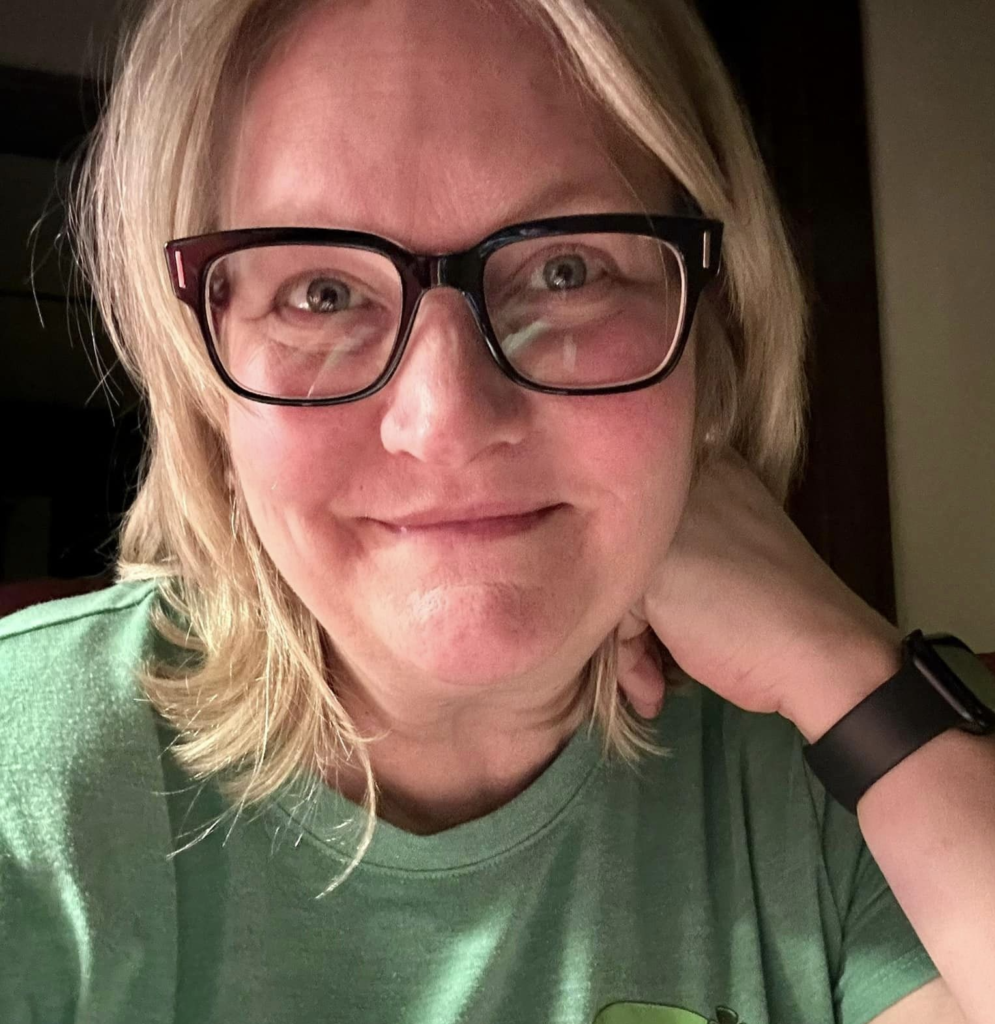The Town of Mooresville had a choice: find a way within its own ordinances to keep a longtime, local business open until its permanent home was built, or strong-arm the small business into shutting down.
Town officials picked the latter, knowing it would upset the people they are purported to serve.
“This item is going to be a social media mess regardless of statement,” Assistant Town Manager Ryan Rase wrote to fellow Assistant Town Manager Beau Falgout on March 17 — two weeks before the town’s temporary 12-month permit for Josh’s Farmers Market (JFM) was set to expire. “Will be interesting to see what happens when rubber meets the road …”
Managing the message
It’s said there are two sides to every story. But the truth has a tendency to surface in two years of emails that none of the authors likely expected would see the light of day. The Scoop recently obtained hundreds of those emails in a public-records request. In reading through them, it became abundantly clear that while the town intended to enforce its brand new ordinances, the more pressing issue was creating and launching a public-relations campaign against JFM Owner Josh Graham, complete with involving state legislators and even taking and sharing (with town-email-accounts) screenshots from Graham and his mother’s Facebook pages.
Why would state legislators intervene in a local government taking measures that it knew would force at least the temporary closing of a community-supported business? Furthermore, why would town officials want to shut down a community-supported business that they, themselves, acknowledge never received one public complaint? Especially when the town had avenues within its own ordinances — even the new ones — to keep the market open …
Town officials have said — even in emails — this issue isn’t “personal” with Graham. A review of town emails suggests otherwise.
Even before JFM’s temporary permit was set to expire on March 30, 2022, town officials began circling the wagons, preemptively working on messaging, which can be a standard strategy when attempting to manipulate the minds of a public that is likely to be sympathetic to an opposing thing or idea. Town officials have spent months exchanging emails, fine-tuning scripted public statements and email responses to concerned citizens, market vendors and media.
“Touching base re: Josh’s Farmers Market,” the town’s marketing and communications director, Megan Suber, wrote in a March 15 email to Planning Director Danny Wilson. “(Town Manager) Randy (Hemann) wants us to craft a statement today.”
Suber followed that message half-an-hour later with another to Wilson: “This is high priority per Randy.”
The morning of March 18, Mayor Miles Atkins apparently forwarded to Hemann and Suber — and copied members of the town board — a message someone left on the town’s phone messaging service about JFM. “For your listening pleasure,” Atkins wrote. “We probably need a response that the Board can use so we’re all saying the same thing as the calls and e-mails start to flood in.”
Just eight minutes later, Suber replied to Atkins and Hemann. Her email included the staff-crafted “scripted response statement,” as she called it — two paragraphs following dozens of email exchanges among staff — and she asked: “Are there any edits for the Board (of Commissioners)?”
Suber seemed proud of the staff’s statement. “Randy,” she wrote, “would you like me to send or would you like that honor?”
The same day — March 18 — Atkins emailed N.C. Sen. Vickie Sawyer to provide “background regarding this unfortunate issue … in case you get asked to intervene.” In a March 31 email to Hemann, Atkins states that he also sent the message to N.C. Rep. Grey Mills.
On March 31, the day after JFM’s 12-month permit expired, Hemann emailed Sawyer, Atkins and Mooresville At-Large Commissioner Lisa Qualls. The message — to which Rep. Mills’ email address was later added — included the staff-crafted statement referenced in earlier emails. “The statement below is what we intend to use to explain this situation when he (Graham) goes to social media,” Hemann wrote. “We will take a beating, but we will require conformance with the ordinances just like every other business (99.9% of which do so without complaining).”
The ordinances Hemann referenced were one month old at the time of his email and are included in a 500-plus-page document called the Unified Development Ordinance (UDO).
While Hemann’s email to town and state officials predicted Graham would take to social media, it would actually be the town, itself, that on Oct. 15 chose Facebook as the platform to air its dirty laundry with a popular, local business.
“Whack-a-mole with trolls”
Not only did the town attempt to manage its preemptive messaging, it also scrambled to control information once it was public. The evening the Scoop published its first article about JFM on Oct. 27, Suber wrote to Atkins and Hemann: “Please be advised this article just went live and we are getting trolled on social media over it.”
The following morning, Suber sent a follow-up message to the town’s managers and Wilson: “Spent 3+ hours … with more coming in this morning … playing whack-a-mole with troll comments, tags, and messages.”
When asked by the Scoop to define “whack-a-mole” as it relates to her job as communications and marketing director, Suber replied: “‘Whack-a-mole’ refers to the monitoring of pop-up alerts and notifications due to an unexpected or sudden inundation of social media activity.”
While busy removing Town of Mooresville tags on Facebook, Suber said she did not delete comments or messages. Deleting written communication with the town would violate N.C. public records laws since that communication belongs to the people and not the government.
“Gotcha” government
Wilson, the town’s planning director, has testified under oath during recent Board of Adjustment (BOA) meetings that he cannot recall having any firsthand knowledge of how the town handled past permits with JFM and that he has “no idea of how (JFM’s use) was considered historically.” But public records reveal that may not be true.
On June 19, 2020 — about three months after joining Town of Mooresville staff — Wilson sent Town Attorney Sharon Crawford an email with attachments. The email reads: “Please see the attached permits and one violation that we have for the Josh’s Farmers Market property.” The attachments include four temporary permits for “farmers market-seasonal sales” issued to Graham for JFM in 2014, 2015 and 2019.
Wilson, himself, issued Graham a similar permit — the 12-month permit in March 2021 — before the new UDO was adopted. Under that temporary permit, Wilson explained in the Dec. 20 BOA meeting, JFM was considered a “non-conforming use.” At times called being “grandfathered,” this allows an existing business to continue operating even when the business no longer conforms to new ordinances.
The new UDO, according to Wilson, removed the ability for temporary uses to be non-conforming: only permanent businesses, he explained, would be established long enough to need non-conforming protections in the event of ordinance changes down the road.
JFM, however, is an example of an established business operating under years of town-issued temporary permits.
Graham said town planners were very clear upon the expiration of his 12-month permit in March 2022: no permits existed to keep the market operational at the YMCA. But miraculously, town staff would soon find one in the new UDO …
The 500-page document had been adopted by Mooresville’s board of commissioners just one month before the town approached Graham about another temporary permitting solution: a 120-day “outdoor seasonal sales” permit that would allow Graham to extend his JFM season four more months, from April to July 2022. “My number-one concern was continuing to operate,” Graham said.
What town staff didn’t share, Graham said, is that signing that new permit under the new UDO would, according to the town, cause his 30-year-old market to lose its non-conforming — or grandfathered — protections.
More simply: Graham was “non-conforming” on March 30. The following day, his permit expired, so on March 31, he was no longer “non-conforming.” So when Graham signed a temporary permit under the new UDO to operate from April through July, he was no longer “grandfathered” in town.
Non-conforming for temporary use is not permitted under the new UDO, Wilson testified, but he was unable to point to where — and in fact if — that is explicitly stated in the UDO.
When the 120-day permit for JFM was set to expire in July, Graham recalls the town giving the market an option: leave the YMCA property or pay fines.
Soon thereafter, town code-compliance officers paid a visit to the market. They sent a “notice of violation” to Graham on Sept. 7, documenting two violations JFM was causing on the YMCA property: operating with an expired permit and posting illegal signs.
On Sept. 12, the YMCA wrote Hemann and Wilson, asking for a meeting. “I believe there is a resolution that we can all get to with an end of operation date to be set,” wrote Ashley Morgan, executive director of Lowe’s YMCA of Greater Charlotte.
Within minutes, Hemann wrote to Wilson, Rase and Falgout: “I sense they want to negotiate and this is not a negotiation.” Ten minutes later, he sent another email to the same people, asking for a meeting that day at 3 or 3:30 p.m. or the following day at 9 a.m. or 2 p.m.
Interestingly, the following afternoon, Wilson sent an email referencing a “list” to Rebecca Saunders, the same code-compliance officer that issued the two violations to JFM the previous week. While the town had scheduled a follow-up inspection of JFM on Sept. 22, presumably to give the market time to correct the violations, Wilson — apparently after discovering Graham planned to pay the fines on the two citations to stay open through December — sent Saunders back out to JFM the very day after his meeting with Hemann, Rase and Falgout.
“Could you please take this list and do an inspection on the YMCA property to make sure that each of these items are clearly documented with photos?” Wilson wrote to Saunders in the Sept. 14 email. “It appears to me that each of these items is a separate violation, and we need to make sure that each one is documented specifically before sending out a new violation letter to the YMCA.”
Two days later, Saunders tacked an additional 12 violations on to the original two, even though those additional violations were present at the market during the first inspection.
Graham thought the fines against him with two violations would be $500 per day, which is the reason he made the business decision to pay them to stay open. But actually, the town told him, it’s $500 per day, per violation. So now with 14 separate issued violations — including the 12 added the day after Hemann’s meeting with Wilson, Rase and Falgout … and eight days before the town was even scheduled to re-inspect JFM — the fines grew to $7,000 a day.
Under the weight of the fines, Graham finally relented and dismantled his market on Oct. 31. In accordance with Wilson’s interpretation of the UDO, Graham then applied for a 120-day outdoor seasonal sales permit on a different parcel of land in Lakeside Park, where he finished his 2022 season.
The town’s choice
If the town had spent as much time fine-tuning its ordinances as it did its PR machine against a local business, this entire brouhaha could have likely been avoided.
The new UDO places JFM in one of three possible categories: farmers market, outdoor seasonal sales or retail sales establishment, the latter of which has far more restrictions and regulations than the other two. And that is the option the town chose for JFM.
But based on the way the ordinances are written, Graham’s lawyers contend, Josh’s Farmers Market is a farmers market and, separately, should be entitled to 360 days a year of outdoor seasonal sales.
The town’s ordinance for outdoor seasonal sales states: “Outdoor seasonal sales shall be limited in duration to a maximum of 120 days and there shall not be more than 3 seasonal sales on a lot per calendar year.”
That literally translates to this: JFM can apply three times a year – for a total of 360 days in a calendar year – to operate on the same parcel of property. Each and every year.
Planners say that’s not how the ordinance was intended and that it wouldn’t make sense to offer 360 days when there are 365 days in a year. Wilson said that would make the use permanent instead of temporary.
It may not make sense, but that’s how the town wrote it and approved it.
We went back and looked at how the ordinance was written before the UDO was adopted in February: “Seasonal sales shall be allowed on an individual lot for no more than 120 days per calendar year.”
Perhaps planners should have left the definition alone.
But since the town’s planning department gets to write the rules, interpret the rules and enforce the rules, then the rules say whatever the town wants them to say.
The town could easily classify JFM as a farmers market, which is a permitted use on the YMCA property, according to an email from Town Planner Brad Priest to other planners on Sept. 13. “The (YMCA) property is zoned C-CM. I believe it’s the conditional rezoning from the original Morrison Plantation rezoning back in 1998,” Priest wrote. “I could not find any conditions from the rezoning that would be violations for the use.
“The UDO allows Farmer Markets as a use and specifically defines it,” Priest added. “That use is also permitted in the CM zoning district. Therefore, assuming this use (JFM) meets that definition and includes vendors, I believe the use could be permitted at the subject location.”
But the town decided JFM doesn’t meet the definition of a farmers market — even though Wilson admitted under oath that he’s not very familiar with Josh’s Farmers Market or how it operates.
The town’s UDO definition of a farmers market is: “an enclosed or outdoor site used by vendors for the sale to the general public of goods prepared by the vendors, including baked, canned or preserved foods or agricultural and horticultural products.”
Graham’s lawyers argue that Graham, in fact, prepares every, single item he sells to the public, fitting him perfectly within the town’s definition of a farmers market. And while the town says that Graham buys and resells 90 percent of what he offers — making him a “grocery store without walls” — Graham says that’s simply not true.


Not unlike the N.C. State Farmers Market, JFM has vendors and consigners, and Graham, himself, grows or raises about 10 percent of what he sells at the market. Of the other 90 percent, Graham — unlike grocery stores — works directly with producers and growers. He said he tries to stay as local as possible but will sometimes drive to South Carolina, Georgia, Tennessee and Virginia for in-season fruits and vegetables when they’re not available locally, and he drives to the coast for seafood. He said folks who want to sell their items at JFM can be on-site, or they can choose to consign their items. “Vendors are welcome any time,” said Graham, “but we leave that up to them. We relay the heaviest foot traffic days – they choose. That’s how it works. But the consigners chose to give up the 20-25 percent of their product sales to avoid having to be on-site, and it gets the product stocked seven days a week.”





Why is the distinction important?
Graham appealed to the BOA the town’s interpretation of its UDO and the resulting fines assessed to the YMCA.
In 7.5 hours of testimony spread across two meetings, the BOA and lawyers for JFM and the town have discussed and disagreed on the hearing’s purpose.
The town says the board’s scope is narrow: it’s simply to determine if JFM was operating outside of town ordinances at the time of the violations — and there’s no question it was — and if the town operated within the UDO for the issuance of violations.
But Graham’s lawyers contend this: if the town had interpreted its ordinances the way they’re written, and if Graham would have known it was an option to seek an official farmers market designation, chances are high that the market would not have been operating outside of ordinances and the town would not be levying hefty fines against the YMCA.
The hearing resumes with closing arguments this Tuesday, Jan. 17, at 2 p.m. in Town Hall, 413 N. Main St. The public cannot speak but is welcome to attend.
But the objectivity of the BOA’s quasi-judicial procedure hearing can already be called into question after the chairman of the board, James Rupp, stated publicly in the hearing on Dec. 20 that he would be voting against JFM being considered a farmers market.
At approximately 1:22:00 in the Town of Mooresville’s video of the meeting, Rupp addressed Graham’s attorney: “This is an outdoor retail use, not a farmers market, in accordance with the narrow statement set forth in the code because Josh is not only allowing others to come there to sell, but he’s buying and reselling goods.
“I don’t think he fits within the definition of farmers market,” said Rupp, “and that’s the way I’m going to be voting.”
Whether it’s problematic under N.C. General Statute 160D-406 for a board member to announce how he views a material issue in the case before all evidence is in would be up to lawyers to decide.







12 thoughts on “A peek inside town’s campaign against local business”
I don’t know who is electing these people to public office or appointing them but the way I see it is that they have a vendetta against JFM.
I completely agree!
These politicians seem to think they should be listened to and obeyed no matter what the voters want. Their egos have blinded them to the good this particular business has done for those same voters and the surrounding town.
The whole lot of those involved need to be purged from the system and sent back to the ditches of which they crawled out of. I would rather go to JFM over any of the businesses that have since replaced in the original spot!
I SUPPORT JFM !!!’
As a 24 yr old college graduate in the degree of finance with a emphasis on business law and have lived in Mooresville since 2002, everything is very black and white when it comes to legal matters with a business. It is a known thing that government both on the state and local scope demands to have some kind of hand in whatever business you have. It’s simple in my mind, if Mr. Graham went through the correct process’s to establish his business years back and grandfather clauses haven’t been amended then he should be able to stay but should have to find a place of business, construction happens and the government cannot straight out force you out of the property you own. It may be expensive to maintain but it is not a you have to go. However, if he didn’t correctly establish his business back in the day or grandfather clauses got amended, then unfortunately by law he has no right to operate legally without permit, this isn’t a kid on a street corner selling lemonade. As it should, Josh’s was a flourishing market which makes thousands of profits.
This is the reason you get a lawyer regardless of how well you think you know things. If he had a lawyer when they said “500 a day for all violations” that would of been by law, and not by an under paid government official.
I do understand what you’re saying. It seems as though they aren’t willing to work with JFM at all. It’s obvious from the emails that they want him out. Why? Did all of us spend time at the Y when they were there? We NEED that in Mooresville! Who cares what you call it? Retail, indoor/outdoor, it was a great gathering space with music, vendors and Josh’s produce and products to purchase. Create a space for that; legally and figuratively. That’s what the people of Mooresville want! If it really doesn’t matter to the powers that be what the people want in Mooresville, why live here?
Completely agree!!
Mooresville is run like a communist country by a group that does what they want and does not care about doing it with honor.
If the Mooresville communist board wants you shut down, they will.
If you think they don’t lack honor, just google Lisa Qualls Mooresville Costco.
They dishonorably tried to hold Costco back ignoring their own zoning and now they are running JFM out of business by changing the code out from under him.
Shame on them.
Producers and the community, alike, are blessed to have JFM in Mooresville!
What the Hell is your problem? You have no problem ruining the entire town with apartments and condos with no infrastructure. Only Davidson took care of their town. 1st Cornelius now Mooresville total greed and no caring about the town. Josh’s Farmers Market provides THE BEST LOCAL produce so shut down the farmers, shut down local…how much money did you get paid to RUIN the town???How long have you lived here??? Go back and ruin where you came from… why do you have it out for him?
After reading those emails, it’s plain to me what was going on at city hall, a conspiracy to back Josh into a corner that he couldn’t escape from. That’s how they work folks. This isn’t leadership, it’s bullying. Good job Town of Mooresville. How does it feel, when the very people you’re committed to serve, want YOU gone….for good?